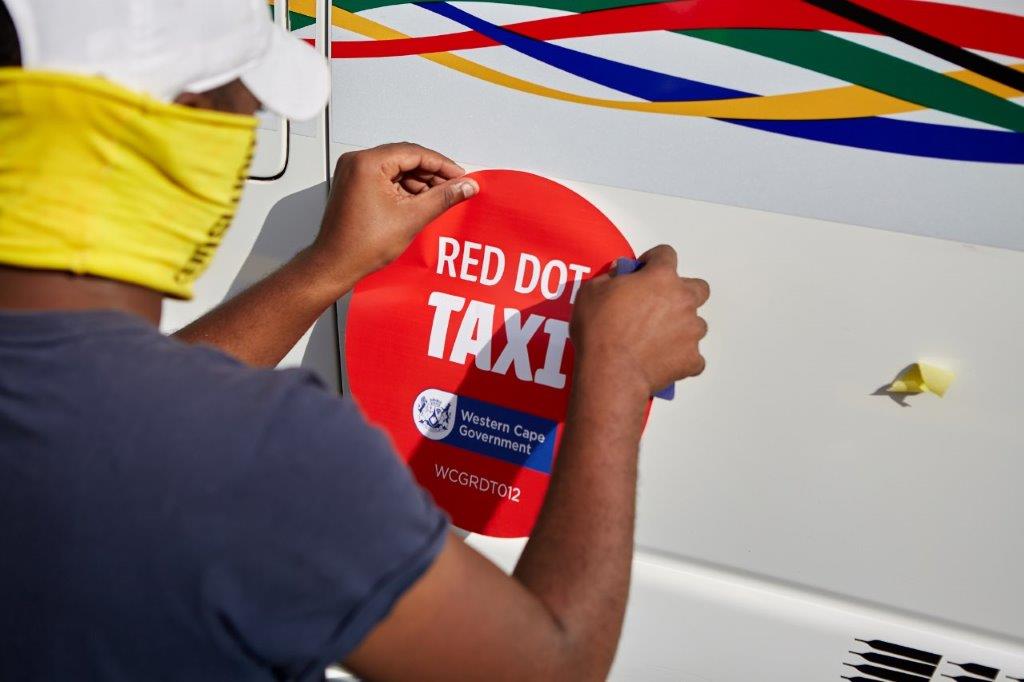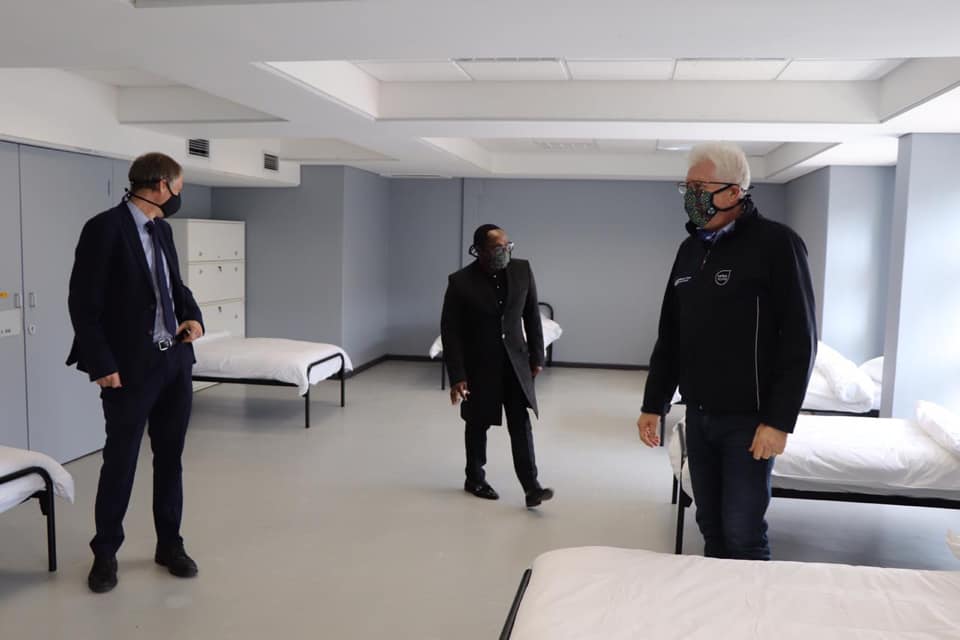
News
Combating COVID-19 through Q&I facilities and safe transport
COVID-19 is highly infectious; and making quarantine and isolation (Q&I) facilities available to residents is one of government’s critical efforts to curb its spread.
As part of the Western Cape Government’s preparations for the peak of the pandemic, the Department of Transport and Public Works (DTPW) established Q&I facilities across the province for those who are unable to effectively quarantine and isolate themselves. The Department also established Red Dot, a safe and purpose-built transport service to and from Q&I facilities. The Q&I facilities themselves are operated by our provincial Department of Health.
What is Q&I?
Q&I refers to restricting the movement of people to prevent the spread of a communicable disease. COVID-19 has the potential to spread very rapidly. Q&I aims to slow the spread of COVID-19 to “flatten the curve”, that is, to reduce the risk that health care facilities will be overwhelmed by a sudden increase in cases.
People who have tested positive should be isolated for ten days. If they still show symptoms after ten days, they should remain in isolation until they no longer show symptoms of the disease. People who are able to safely isolate themselves are encouraged to do so. Those who live in conditions where they cannot effectively isolate themselves are accommodated in one of the DTPW Q&I facilities.
People who may have the disease (e.g. show symptoms of COVID-19, or have been in contact with a confirmed case) should be quarantined until they receive their test results. If they are unable to quarantine themselves, they will be accommodated in a DTPW Q&I facility. If their test is positive, they should be isolated.
Initial modelling of the likely course of COVID-19 in the Western Cape suggested that the pandemic would peak in July 2020, at which point there would be a need for between 46 265 and 53 035 quarantine beds, and between 9 551 and 11 580 isolation beds. Modelling has been steadily refined and adjusted as more data becomes available.
Red Dot and Red Dot Lite
Because COVID-19 is so infectious, safe transport for people who rely on public transport is essential. DTPW established the Red Dot and Red Dot Lite transport services in partnership with the South African National Taxi Council. These services comprise a fleet of 200 vehicles operated by SANTACO’s Umanyano operating company. The name “Umanyano” was chosen because it is the Xhosa word for unity.
Red Dot taxis transport people to and from Q&I facilities. They are fitted with protective screens to separate the driver and passengers, are fitted with vehicle trackers, and are branded with the recognisable Red Dot sticker. The vehicles are thoroughly cleaned and sanitised after every trip. All drivers have gone through the Red Dot Taxi training programme, which includes health and safety protocols. Hand sanitiser is available on board for drivers and passengers. Vehicles may only carry 50% of their licensed carrying capacity to allow for adequate social distancing. Red Dot Lite, also operated by Umanyano, provides transport for public sector health workers to get home.
Services are carefully monitored with onboard vehicle trackers, on-the-ground field monitoring, and passenger cellphone feedback using the USSD code *134*234#. These sources of data are all linked in DTPW’s Integrated Transport Hub. Passengers can book their trips using a USSD code or a purpose-built app called Frontline Hero. A driver app has been developed to dispatch and communicate with drivers in the field.
Early indications are that the first peak of the pandemic in the Western Cape has passed. DTPW is proud to have made a contribution to this achievement.
By 31 August 2020, Red Dot taxis had made 9 956 passenger trips to and from Q&I facilities, and Red Dot Lite had made over 65 000 passenger trips and travelled over 1 000 000 passenger kilometres from 25 health facilities all over the Western Cape.
On 31 August 2020, 393 of the total Q&I bed capacity of 3 523 was being utilised. Preparations have been in place for up to 9 967 beds to be made available should this be necessary.
| Beds | Facilities | Occupied | |
| Cape Winelands | 438 | 8 | 46 |
| City of Cape Town | 1962 | 13 | 210 |
| Central Karoo | 69 | 3 | 31 |
| Garden Route | 150 | 1 | 82 |
| Overberg | 280 | 5 | 15 |
| West Coast | 624 | 7 | 9 |
| Total | 3523 | 37 | 393 |
Jandré Bakker
Head of Communication
Department of Transport and Public Works
Email: Jandre.Bakker@westerncape.gov.za





